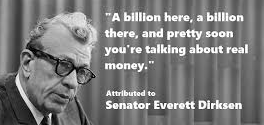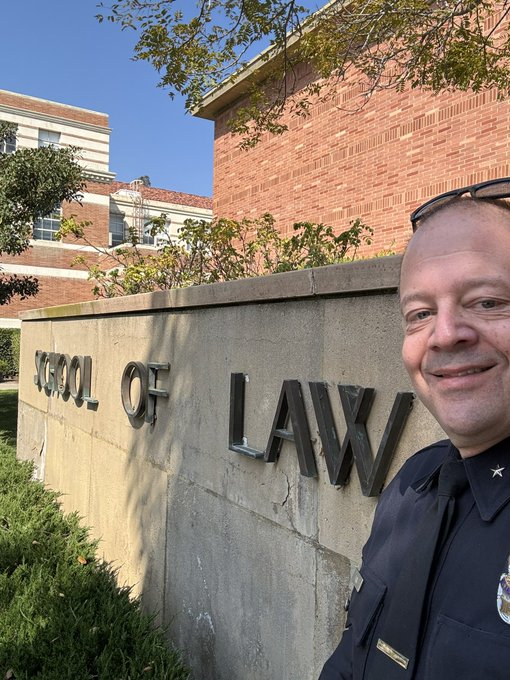For those concerned with frozen federal grants, the item below may be relevant.Email from Jason Sisney of the Legislative Analyst's Office: The U.S. Office of Management and Budget (OMB) appears to be ordering a broad temporary pause on federal grant and other funding programs, except Social Security and Medicare. While an OMB memo states the pauses will occur only to the extent permissible by law, reports indicate that a broad funding pause is contemplated, affecting many programs important to poor households, educational institutions, state and local governments, businesses, and others. Federal law and past court cases make it clear that Presidents cannot unilaterally delay or cancel funding appropriated by Congress. Therefore, broad court challenges to OMB’s actions are certain, unless the pause is rescinded...
—
What Is OMB Doing?
In a memo released on January 27, 2025, the U.S. Office of Management and Budget (OMB) directed federal agencies to “identify and review all Federal financial assistance programs and supporting activities consistent with” President Trump’s “policies and requirements.”* The memo excludes Medicare and Social Security benefits from this review. The OMB memo directs federal agencies to “complete a comprehensive analysis of all of their Federal financial assistance programs to identify programs, projects, and activities that may be implicated by any of the President’s executive orders.”
Federal agencies are directed, “to the extent permissible under applicable law,” to “temporarily pause all activities related to obligation or disbursement of all Federal financial assistance, and other relevant agencies activities that may be implicated by the executive orders.” These are said to include, but not be limited to, undefined funding of “nongovernmental organizations, DEI, woke gender ideology, and the green new deal.” The temporary pause is effective “on January 28, 2025, at 5:00 PM.” Agencies must submit to OMB information on programs subject to the pause no later than February 10, 2025. Each agency is directed to pause issuance of new funding awards, disbursement of federal funds under all open awards, and other relevant agency actions “to the extent permissible by law” until OMB has reviewed and provided guidance with respect to the information submitted.
On January 28, 2025, OMB circulated a 52-page document ordering agencies to review thousands of programs, “including,” as reported by POLITICO, “many that send assistance each month to U.S. households, like food aid to ‘very low-income’ people age 60 and over, the home energy program that helps cover winter heating costs for the poorest households and the WIC program that aids low-income pregnant mothers and babies.”**
What Are the Constitutional Issues With All This?
“Impoundment,” an action by a government executive to delay or not spend funds appropriated in legislation, has been thoroughly examined by federal courts and the Congress in prior decades. “Attempted impoundments were rare until President Nixon took office,” the Center on Budget and Policy Priorities (CBPP) explains. Intended recipients of funding then, often state or local governments, “regularly sued for release of the withheld funds…and they regularly won.” “In general, the Nixon Administration released the impounded funds after losing, but it appealed one case to the Supreme Court,” which ruled 9-0 against the Nixon Administration.
Congress enacted the Impoundment Control Act (ICA) of 1974, which, following court cases that upheld the congressional power of the purse, provided a specified, fast-track legislative process to allow the President to request and Congress to consider a funding change. The ICA also granted the U.S. Government Accountability Office the authority to trigger the process if the President fails to report an impoundment and to sue for release of funds after the 45 days elapse, as CBPP notes. Presidents, however, have rarely used this ICA mechanism since the mid 1970s.***
As U.S. Representative Brendan Boyle (D-Pennsylvania) recently explained, recent legal theories that a president may use impoundments by fiat to bypass Congress “are as idiotic as they are dangerous.”
What Happens Next?
Unless funds are released consistent with prior practice and congressional intent, broad legal action by many plaintiffs challenging the OMB pause seems likely. California Attorney General Rob Bonta said last night, “Make no mistake—any pause to critical funding would hurt families and threaten public health and safety.” “We’re prepared to protect CA’s people and programs from POTUS’ reckless and dangerous actions,” Bonta continued.
The California State Assembly is expected to vote on SBX2 1, a bill to allow potential augmentations to the state executive branch’s legal defense budget, if needed to defend the state’s interests against unlawful federal government activity.
---
*https://www.documentcloud.org/documents/25506191-omb-memo-1-27/.
**https://www.politico.com/f/?id=00000194-ad9c-de9c-a5b6-efbd29400000. There is a spreadsheet in this document listing NSF, National Endowment for the Humanities, and various NIH programs (under Dept. of Health and Human Services). It appears to be a listing of most federal programs including the various cabinet agencies.
***Impoundment is discussed on pages 30-31 of this 2023 Congressional Research Service document:
https://crsreports.congress.gov/product/pdf/R/R46240.
==============
Related email:
Dear University of California Community: |
|
On Jan. 27, the federal Office of Management and Budget (OMB) sent a memo to federal departments and agencies putting a temporary pause on federal grants, loans and other financial assistance programs effective 2 p.m. PT/5 p.m. ET Jan. 28. On Jan. 28, OMB issued additional guidance clarifying that the only programs subject to the pause are those related to the listed presidential executive orders. The White House also clarified that programs including Medicare, Medicaid, Social Security, Supplemental Nutrition Assistance Program (SNAP), federal student loans and Pell Grants, among others, would not be affected. |
|
The memo is broad and it is not yet possible to know the full extent of its implications. We do know that it directs each agency to ensure their grants and loan programs are consistent with President Donald Trump’s executive orders. |
|
I want to assure you that University of California leaders, along with UC Legal and our federal governmental relations teams, are working diligently to clarify the potential impacts of the memo and the new administration’s executive actions on the University and our communities. We are in contact with key policymakers in Congress and at federal agencies, as well as association partners and other higher education institutions. We are evaluating what actions we are able to take and will keep you informed. In the meantime, more specific information related to federal financial aid and the research enterprise will be shared with your campus leaders as it becomes available. |
|
During such challenging times, we remain committed to our students, staff, faculty, patients, and one another. This is an uncertain time for many and while we don’t yet know what lies ahead, we remain steadfast in our values, our mission, and our commitment to caring for and supporting our entire community. I encourage you and affected members of our community to make use of available support resources on our campuses. |
|
Thank you for all that you do on behalf of the University of California. |
|
Michael V. Drake, M.D.
UC President |
|
==============
Related (possibly):
From Politico: A federal judge has halted President Donald Trump’s freeze on federal aid programs, ruling that the courts need more time to consider the potentially far-reaching ramifications of his order. Minutes before the directive from Trump’s budget office was to take effect Tuesday, U.S. District Judge Loren AliKhan blocked the Trump administration from implementing it for now.
AliKhan’s order will expire Feb. 3 at 5 p.m. The Trump administration cannot suspend disbursement of any congressionally appropriated funds until then. The judge described the move as a “brief administrative stay” intended to maintain the status quo while further litigation can play out...
Full story at https://www.politico.com/news/2025/01/28/donald-trump-freeze-blocked-00201082.
==============
Related (possibly):
From the Sacramento Bee: Donald Trump on Tuesday afternoon signed an executive order barring any federal funds to go toward gender-affirming health care for transgender minors. Accordingly, the order reads, “it is the policy of the United States that it will not fund, sponsor, promote, assist, or support the so-called ‘transition’ of a child from one sex to another, and it will rigorously enforce all laws that prohibit or limit these destructive and life-altering procedures.” The order states that any agency that provides grant funding to medical schools or hospitals must revoke funding unless those institutions “end the chemical and surgical mutilation of children.” ...
Full story at https://www.sacbee.com/news/politics-government/capitol-alert/article299328124.html.



































